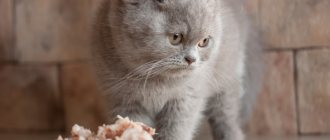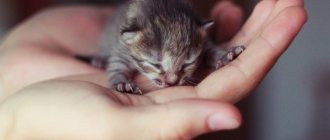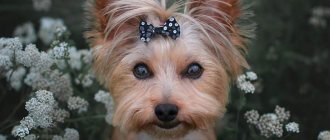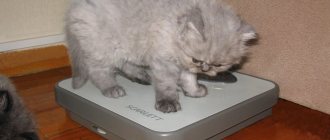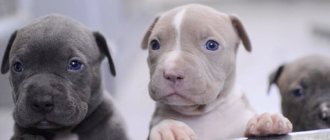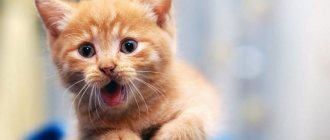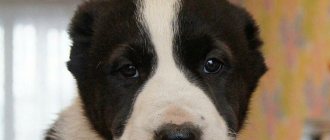At 5 months, the kitten is still quite young, but it is worth noting that puberty is just around the corner. This means that your furry friend will soon receive a large dose of teenage hormones, which will lead to significant changes in various aspects, including daily behavior. During such a period, the pet will cause all sorts of trouble to everyone in the house, not paying attention to the world. While it's difficult to completely avoid trouble, you can still minimize the potential damage if you have a general picture of your 5-month-old kitten's behavior.
So, you want to hear what people have to say about a 5 month old kitten's behavior? Then this article will definitely be useful to you. The following information contains everything cat parents need to remember once their kitten reaches 5 months of age.
Types of food
The digestive system of a kitten at the age of 5 months is formed; it can digest both soft and hard food. This makes it possible to expand your pet’s menu by including new, healthy foods in the diet. You need to immediately decide how the animal will eat. Switching from one type of food to another has a negative impact on the kitten’s health.
Types of feeding:
- Natural food . This type of diet is preferable because it is as natural and natural as possible for animals. Disadvantages of the diet are the need to prepare food for your pet every day and the mandatory intake of vitamin and mineral complexes.
- Industrial food - owners most often give it preference. Ready-made dry and wet food is easy to use because it can be kept in a bowl for several days without losing its benefits and taste. Ready-made food contains vitamins and other beneficial substances necessary for the normal development of a kitten. The disadvantage is that good, high-quality food is not cheap.
- Combined diet . This is a combination of industrial rations and “natural food”. This type of feeding is not approved by veterinarians, as it carries risks of negative effects on the kitten’s body. The combination of natural products and industrial feeds can lead to hypervitaminosis.
The only combination of foods allowed for kittens is alternate feeding of dry food and wet canned food.
Indicators of a British kitten at 3 months
At the age of three months, indicators are quite important. They reflect the correct care of the animal, the appropriate diet of the British kitten and the state of health at 3 months. At the same time, there is a slight error taking into account heredity and place of residence. Sometimes a representative of a breed may have a certain genetic deviation , therefore, when calculating development norms, it is advisable to take into account the development of both parents. The environment (ecologically polluted) can dull the development of a kitten.
Rules and recommendations for choosing food
Proper feeding of a kitten is a question that plagues many owners of furry pets. I would like to organize a diet that is not only tasty, but also as healthy as possible. You can make the right choice based on the recommendations of experts:
- The diet of a pet at the age of 5 months should be balanced and nutritious, regardless of the financial capabilities of the owner. You should understand that if expensive dry food was initially chosen for a kitten, transferring it in the future to budget categories, and therefore of lower quality, can lead to a number of health problems.
- When choosing industrial feed, you need to focus not only on its price, but also on its quality. There are no good and healthy cheap food. If it is not possible to purchase an expensive product, it is better to feed your pet natural food.
- Natural food should only be used if the pet owner has enough time to prepare food. If the owner is often away from home for a long time, it is better to feed the kitten with industrial dry food; it can be left in stock without worrying that the baby will remain hungry.
When choosing the type of feeding, you should also consider the breed of the cat. Many purebred cats are prone to a number of diseases of the digestive or urinary system, which means that such kittens require special types of food or, in the case of “natural” cats, the exclusion of a number of products from the menu.
How to care for an eight month old kitten
What care does an eight-month-old kitten need?
This period is quite difficult, since now you need to clearly know whether to sterilize the cat or not. Those owners who have a cat should no longer delay sterilization, since soon the cat will begin to develop sexual behavior, which then cannot be eliminated with the help of sterilization. However, it is also better to castrate cats at this age, since castration after one year is extremely undesirable.
Ready-made feed
For 5-month-old kittens, a commercial diet is more beneficial. The dry granules contain vitamins and minerals. Nutrients not only help the kitten to develop properly and fully. They have a beneficial effect on the state of his digestive tract and immunity, reducing the likelihood of many diseases. For kittens, veterinarians recommend choosing food from the following categories:
- Holistics . This is the most expensive, but also the highest quality type of industrial power supply. The composition includes exclusively natural products. There are no flavor enhancers, emulsifiers or other chemicals that can cause irreparable harm to your pet's health.
- Super-premium is a high-quality food that also contains natural ingredients. Additionally includes fruits and vegetables.
- Premium – inferior in price and quality to holistic specialists. The composition contains substances, mineral components and vitamin sets that are useful for growing and developing babies. Kittens are allowed to use them without fear for their health.
Ban on low-quality products.
Budget options such as “economy” - Kitiket, Whiskas, Friskas, etc., are highly not recommended.
They contain few useful components, many flavor enhancers, flavorings, food additives and emulsifiers. Regular feeding of your pet with such products negatively affects the condition of the gastrointestinal tract, increasing the likelihood of various diseases.
Top five. Recommended ready-made food for 5-month-old kittens:
- ProPlan Optistart Junior is included in the premium category. Contains healthy and natural nutrients and has an affordable price. Not the best, but quite suitable for growing babies.
- Royal Canin - contains a high content of protein, vitamins and minerals. Used for feeding kittens aged 4-12 months.
- Orijen Cat & Kitten is a universal industrial food. It can be given to both kittens and adults. Contains protein.
- JOSERA Kitten Minette is a food that will provide the kitten with adequate nutrition and development. A special feature is the presence of a large amount of fiber. This substance improves the functioning of the digestive system. Especially recommended for long-haired purebred kittens. Fiber prevents the formation of hairballs in the gastrointestinal tract. Age range: 2-12 months.
- Hill's Science Plan Kitten Chicken – the products are of fairly good quality with a vitamin and mineral composition. A distinctive feature is that the granules are large in size, so they are ideal for mature, toothy kittens.
You cannot limit your kitten's diet to dry kibble alone.
The diet should be diluted with canned food, jellies and semi-moist food. It is advisable to select granules and canned food from the same manufacturer.
Some external features
All representatives of the breed, regardless of their color, place of residence and characteristics of care, have a number of appearance characteristics. Using them, you can determine the kitten’s species:
- Round head, wide cheekbones and short neck;
- Short and straight nose, small and low-set rounded ears;
- Big eyes;
- Grounded, massive body;
- Short, but quite thick paws;
- Thick, medium-sized tail;
- Short but very thick coat.
3 month old British babies © shutterstock
Natural food
Many kitten owners associate natural food with borscht, porridge and stew. This is completely wrong. Feeding a kitten at the age of 5 months, as well as an adult cat in the future, with human food from the table is strictly prohibited. A natural diet should consist of certain foods:
- Beef . This lean variety is considered the most beneficial for a kitten. Meat must first be frozen for at least 3 days. It should be defrosted before serving to your pet. Beef can be served boiled, but without salt or any spices. You need to chop it, but not too finely. At 5 months the kitten is able to chew large pieces.
- Chicken meat . Kittens can only be given sirloin, only boiled and without skin. Chicken is an allergenic product, so it is recommended to start with a small amount, monitoring the kitten’s reaction.
- Fermented milk products . Kittens should definitely include cottage cheese and sour cream, cream and fermented baked milk in the menu. The fat content of fermented milk products is no more than 10%. There should be no additives or sugar in fermented milk.
- Vegetables and berries (except starchy ones) . You shouldn’t give them to your pet too often; a couple of times every 7 days is enough. Allowed: apples, carrots, cabbage. All of them are grated and served raw, without salt or spices. It is allowed to season the grated vegetables with a couple of drops of oil, preferably olive.
- Cereal crops . Buckwheat and oatmeal are boiled in water or milk diluted in equal parts with water. Cereals should be cooked without salt and sugar. Boiled cereals are not an independent dish; they need to be mixed with meat.
Prohibited Products
Children's menus should not include:
- Fatty meat - duck, lamb, goose and pork. These varieties are poorly absorbed by the kitten’s digestive system and place an excessive burden on the liver. Regularly feeding a kitten with fatty meat can result in serious problems with digestive functions.
- milk is not absorbed by the kitten's gastrointestinal tract. It is extremely rare to give goat's milk, but it must be diluted with water.
- Salt, spices, sugar . Not a single kitten will refuse well-peppered and salted meat and will even ask for more. But you can’t please your pet with such delicacies if you don’t want him to suffer from digestive diseases later.
- Legumes cause fermentation and disrupt the digestive tract.
- Vegetables: eggplant, potatoes, tomatoes. They contain substances that have a toxic effect on the cat's body.
Fish products . Fish in the diet of a 5-month-old kitten is a controversial product. Such food is not natural for representatives of the cat world, since they do not feed on it in the wild.
If you give your kitten fish, then no more than 1-2 times a week, and only sea, lean varieties.
Feeding a kitten with river fish is strictly prohibited.
Second week of life
At 10 days of age, babies' visual organs begin to open and their first hearing abilities appear. They already confidently respond to sound sources, the most significant of which for them can be called the meowing of a cat. Indeed, by 2 weeks, babies’ eyes are open, but their vision is still difficult to call clear: they see everything blurry and fuzzy.
The further development of kittens can be negatively affected by their separation from their mother at such an early age. In the first weeks after birth, for every baby, a cat is not only care, warmth and protection (including immune protection, with the help of antibodies that they receive in regular portions of colostrum and milk). Separation will also negatively affect the pet’s future relationships with people, other animals, and its learning abilities.
Meal schedule
You can leave dry granules in a bowl only in one case - if the owner leaves home for a long time, and this is not permissible to do with natural products. In addition to this case, you need to accustom the kitten to the fact that he has a certain feeding regimen:
- After the satiated kitten moves away from the bowl, it needs to be put in the refrigerator.
- The frequency of food intake for a 5-month-old kitten is 4 times a day. Night feedings are not provided.
- Giving any food between feedings is prohibited.
- The amount of food per day is from 180 to 210 g, depending on the size of the kitten. Meat products should predominate in the diet.
Overeating is fraught with the development of obesity and a number of other complications.
Also watch the video of what to feed a kitten at five months:
Water
Regardless of the type of diet, the kitten should always have access to fresh drinking water. It is best to use filtered, bottled water, since running tap water contains chlorine and other chemical compounds.
Water bowls can be made of plastic, ceramics, clay, stainless steel, but not only aluminum. Place them close to where the kitten eats food.
Change the water twice a day. Wash bowls well with running water without using household chemicals.
